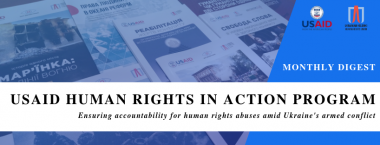UHHRU took part in a 5th International Forum “Occupied Crimea: 5 Years of Resistance”. The forum consisted of 3 panels meant to show the world that the so-called referendum held 5 years ago was a crime perpetrated by Russia against Ukraine, an armed occupation. The participants of this high-level event discussed national and international instruments of the fight for the return of Crimea as well as once again highlighted the ongoing human rights violations in the occupied peninsula.
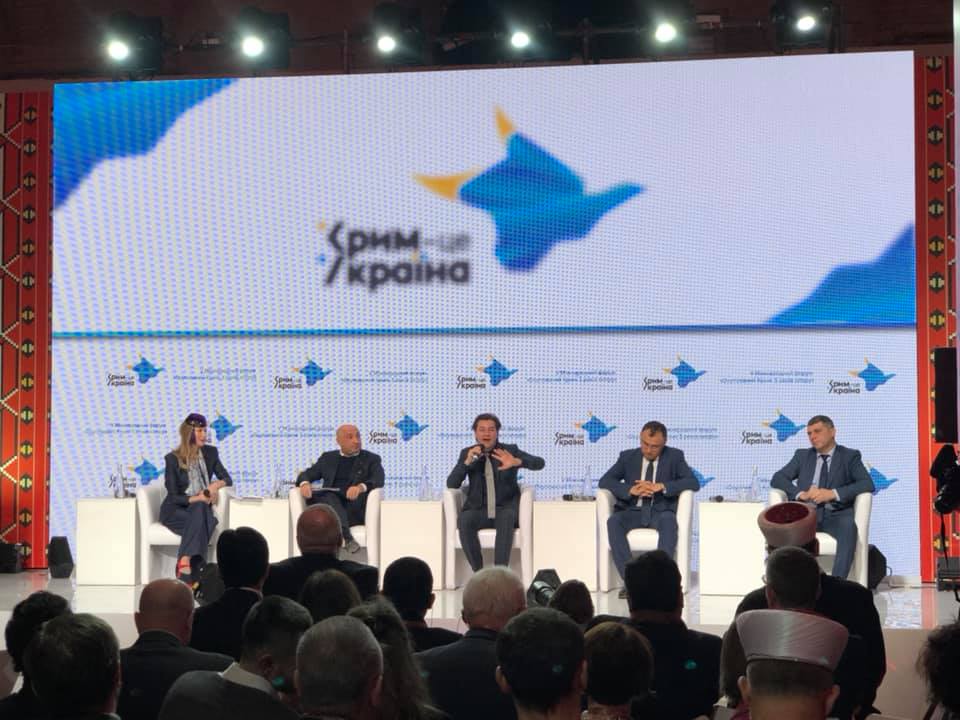 At this event, organized by Ukraine’s Ministry of Information Policy, the Ukrainian Helsinki Human Rights Union was represented by human rights defender Darya Svyrydova.
At this event, organized by Ukraine’s Ministry of Information Policy, the Ukrainian Helsinki Human Rights Union was represented by human rights defender Darya Svyrydova.
Key human rights statistics for these 5 years:
- Over 2 million Ukrainians for whom Crimea has become one huge prison after February 2014;
- 30 thousand people displaced from Crimea, and that’s according only to official sources;
- 8 thousand civilians forcibly taken to Russia or deported from Crimea;
- Over 4,000 orphans and children deprived of parental care remaining in the occupied Crimea without Ukraine’s protection;
- 12 thousand Crimeans forcibly conscripted in the Russian army;
- 140 thousand crossings of checkpoints between mainland Ukraine and Crimea every month;
- At least 70 Ukrainian citizens illegally detained in Crimea or Russia for political reasons;
- 2 criminal proceedings, one submission to the European Court of Human Rights, and 5 years of uncertainty and holding out hope experienced by the family of the kidnapped Tymur Shaimardanov;
- Volodymyr Balukh’s 3 years in illegal detention for being a Ukrainian national;
- Server Mustafayev’s 10 months in detention for being an activist and human rights defender;
- 174 court sessions analyzed in 9 politically-motivated trials over 2 years alone;
- 106 instances of torture and ill-treatment;
- 20 judges, 57 investigators, 12 prosecutors and 9 public officials involved to varying degrees in torture and ill-treatment practices in the cases of Kremlin’s political detainees;
- Over 350 persons facing criminal and administrative liability for participating in peaceful gatherings;
- Lawyer Emil Kurbedinov’s 15 days of detention; at least 15 instances of attacks, searches, intimidation and arrests of lawyers in connection with their professional activities;
- 60% of lawyers forced to cease their professional activities or leave Crimea;
- 20% of judges replaced with judges from Russia;
- 24 captured sailors;
- Almost 1,500 proceedings under the procedural supervision of the Prosecutor’s Office of the Autonomous Republic of Crimea;
- Only 20% of births and deaths that occurred in the occupied territory of Crimea registered by Ukraine’s responsible agencies;
- Millions of IDPs await for the adoption of bill 6240 that would allow them to exercise their voting right during local elections;
- 699 – the number of a discriminatory resolution of the National Bank of Ukraine that turned millions of Crimeans into non-residents in a blink of an eye;
- 14 recommendations of human rights organizations for the Ukrainian government agencies on the protection of conflict-affected population;
- Hundreds of questions that start with the words “The next day after the deoccupation, what will happen to…”. What will happen to numerous facts of birth and death that occurred within this period of time and that were not registered by Ukraine’s competent agencies? What will happen to thousands of property rights registered by the occupation authorities? What will happen to persons deprived of their liberty by the RF for a criminal offense? What will happen to persons who in this of that form cooperated with the occupation authorities, i.e. what responsibility waits for them?
“5 years. When I said it aloud at some event early this year, I couldn’t help but feel dread. I left Crimea in the spring of 2014 for a short time, for the sake of my own safety, thinking I’d be back soon… And now I have two personal figures – 5 years and 900 kilometers that separate me from my home”, says Darya Svyrydova.
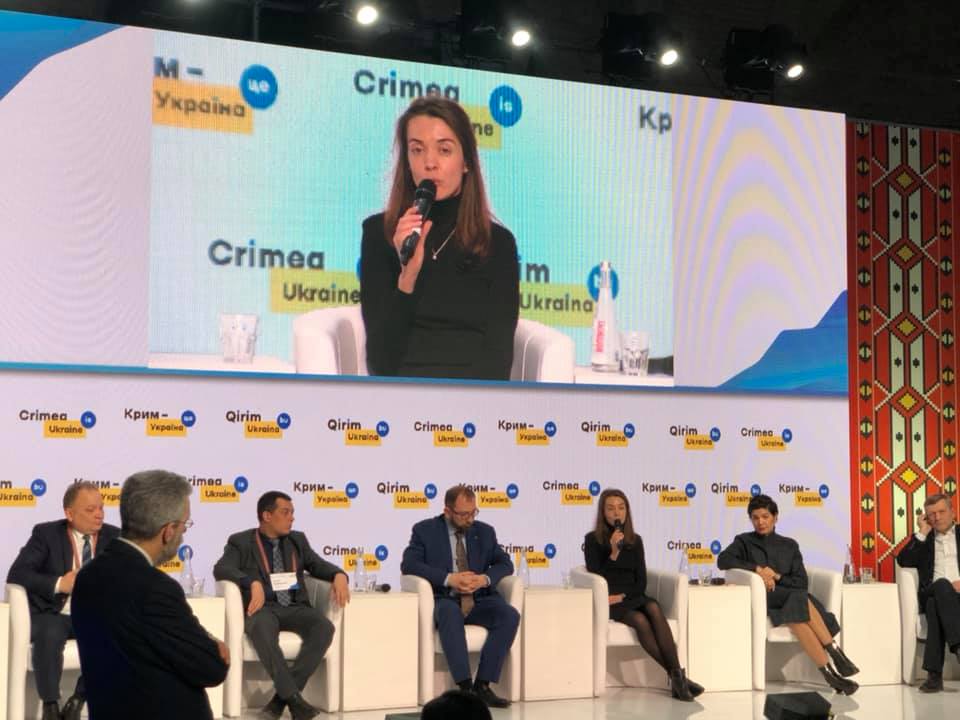 At the same time, according to Darya, Ukrainian human rights defenders and the Government of Ukraine have done a lot in this regard:
At the same time, according to Darya, Ukrainian human rights defenders and the Government of Ukraine have done a lot in this regard:
- 5 interstate complaints submitted to the European Court of Human Rights;
- 1 case at the International Court of Justice;
- At least 6 reports provided to the Prosecutor of the International Criminal Court;
- Dozens of resolutions adopted by the UN General Assembly, Parliamentary Assembly of the Council of Europe and European Parliament condemning the occupation of Crimea;
- Close to a hundred applications to the European Court of Human Rights prepared by UHHRU lawyers, including jointly with partners, regarding gross human rights violations in Crimea;
- Dozens of perpetrators that should be put on sanction lists identified;
- Almost 100 million allocated by the government to assist Kremlin’s detainees and their families;
- Hundreds of children from Crimea getting education within the government-controlled territory of Ukraine despite everything;
- Resolution of Ukraine’s Cabinet of Ministers 1035 that created a mechanism of corruption and led to violations of Crimeans’ property rights abolished by the court;
- Dozens of brave lawyers and journalists who continue their service in Crimea;
- Hundreds of Crimean IDPs that started a business, became activists or went on to work for the government, doing everything in their power to get Crimea back;
- A bill on transitional justice developed by human rights defenders that takes into account human rights protection standards.
UHHRU formulated 5 recommendations that should be implemented as soon as possible:
- To further the implementation of transitional justice – to adopt a law on fundamentals of the state policy for protection of human rights to overcome the consequences of the armed conflict.
- To help defend detained Crimeans – to develop a clear vision and promote the creation of a negotiation platform for the release and/or improvement of the humanitarian situation of Kremlin-detained Crimeans.
- To put real pressure on those responsible for the occupation – to amend the Law of Ukraine “On Sanctions” and to implement the Magnitsky Act.
- To make Crimea and its residents heard all over the world – to simplify the procedure for traveling in and out of Crimea for independent foreign advocates, human rights defenders and journalists.
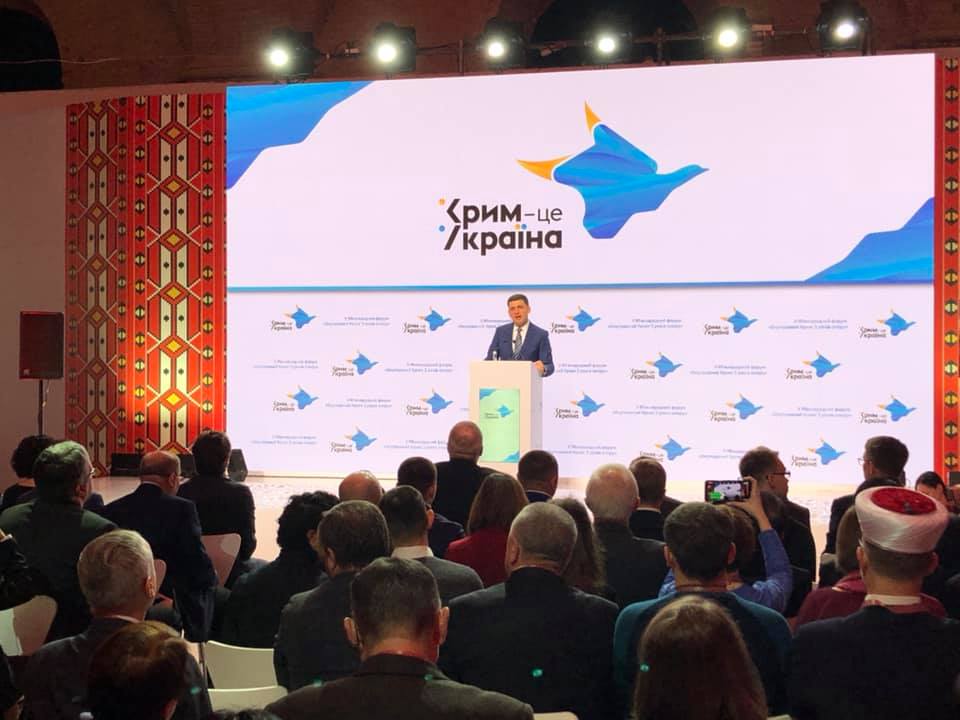 To ensure the right to know the truth and to guarantee prosecution for committed crimes – to strengthen the capacity and professional potential of Ukraine’s law enforcement of Crimea and judges in the conduct of proceedings related to overcoming the consequences of the armed conflict.
To ensure the right to know the truth and to guarantee prosecution for committed crimes – to strengthen the capacity and professional potential of Ukraine’s law enforcement of Crimea and judges in the conduct of proceedings related to overcoming the consequences of the armed conflict.
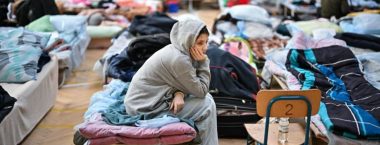
 At this event, organized by Ukraine’s Ministry of Information Policy, the Ukrainian Helsinki Human Rights Union was represented by human rights defender Darya Svyrydova.
At this event, organized by Ukraine’s Ministry of Information Policy, the Ukrainian Helsinki Human Rights Union was represented by human rights defender Darya Svyrydova. At the same time, according to Darya, Ukrainian human rights defenders and the Government of Ukraine have done a lot in this regard:
At the same time, according to Darya, Ukrainian human rights defenders and the Government of Ukraine have done a lot in this regard: To ensure the right to know the truth and to guarantee prosecution for committed crimes – to strengthen the capacity and professional potential of Ukraine’s law enforcement of Crimea and judges in the conduct of proceedings related to overcoming the consequences of the armed conflict.
To ensure the right to know the truth and to guarantee prosecution for committed crimes – to strengthen the capacity and professional potential of Ukraine’s law enforcement of Crimea and judges in the conduct of proceedings related to overcoming the consequences of the armed conflict.
